Europe celebrates the anniversary of the adoption of the Social Economy Action Plan for the continent
12 12 2022
0 Comments
Representatives of the European social economy met in Brussels last Wednesday to celebrate the anniversary of the approval of the European Action Plan on Social Economy by the European Commission, which took place on December 9 last year. The event, which was organized by the entity that represents this business model in Europe, Social Economy Europe (SEE), and the Social Economy Intergroup of the European Parliament, was attended by different personalities who explained why this plan is an opportunity to promote this business model, create quality jobs and achieve sustainable development in Europe. That same day was celebrated the 10 years of the employers of the European Social Economy, an entity that took the opportunity to meet its General Assembly, which approved the entry of three new members.
Latest news
27 December 2023
The Social Economy is the enterprise model with the greatest presence in rural areas and medium-sized cities and the greatest resilience to job destruction.
17 October 2023
CEPES proposes the creation of a Euro-Mediterranean strategy for the region's social economy enterprises and organisations.
25 January 2023
Madrid will host at IESE Business School the presentation of the study 'How partnerships strengthen the social economy'
• Last Wednesday, at an event organized by Social Economy Europe (SEE) and the Social Economy intergroup of the European Parliament.
• The event was attended by, among others, the president of CEPES and Social Economy Europe, Juan Antonio Pedreño; the Commissioner for Employment and Social Rights, Nicolas Schmit; the Secretary of State for Employment and Social Economy, Joaquín Pérez Rey; the co-chair of the Social Economy Intergroup in the European Parliament, Patrizia Toia; and the vice-president of this same Intergroup, Jordi Cañas.
• The purpose of this plan, with a time horizon until 2030, is to promote a diverse economy at the service of people, democratic, sustainable, inclusive and committed to society.
• During the event, the ten years of Social Economy Europe (SEE), the entity that represents companies and entities of the social economy in Europe, were celebrated.
• The ESS Assembly was also held, in which the entry of three new partners was approved.
Madrid, December 12, 2022.- Representatives of the European social economy met in Brussels on Wednesday to celebrate the anniversary of the approval of the European Social Economy Action Plan by the European Commission, which took place on December 9 last year.
During the event, different round tables were held to analyze the main points included in this plan, which sets out more than 50 measures to be implemented until 2030 in key areas such as state aid, legal and political frameworks, socially responsible public procurement, support for companies and youth entrepreneurship, access to financing, contribution of the social economy to the green and digital transitions, social innovation and recognition, among others. In addition, one of the objectives set by the plan is the growth of this business model in Europe, going from representing 6.3% of employment to 10% in 2030.
The event, which was organized by the entity that represents this business model in Europe, Social Economy Europe (SEE), and the Social Economy Intergroup of the European Parliament, was attended by different personalities who explained why this plan is an opportunity to promote this business model, create quality jobs and achieve sustainable development in Europe.
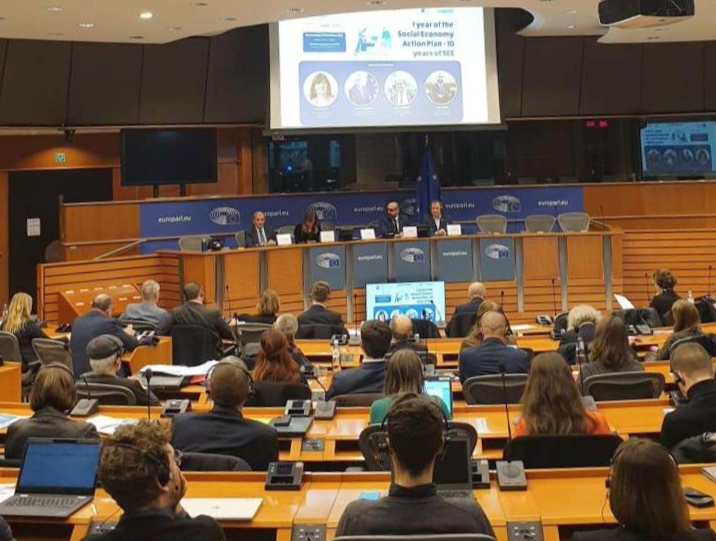
The president of the Spanish Business Confederation of the Social Economy (CEPES) and Social Economy Europe, Juan Antonio Pedreño, highlighted the recognition of this business model, "a factory of social, economic and environmental innovation that has much to offer to the future of Europe, which is already given a leading role as a model capable of accelerating transformation processes". In addition, he pointed to this business model as a "solution and engine of local development" in the face of the current socio-economic situation, inflation, climate change, increasing inequalities and "disaffection for our democracies."
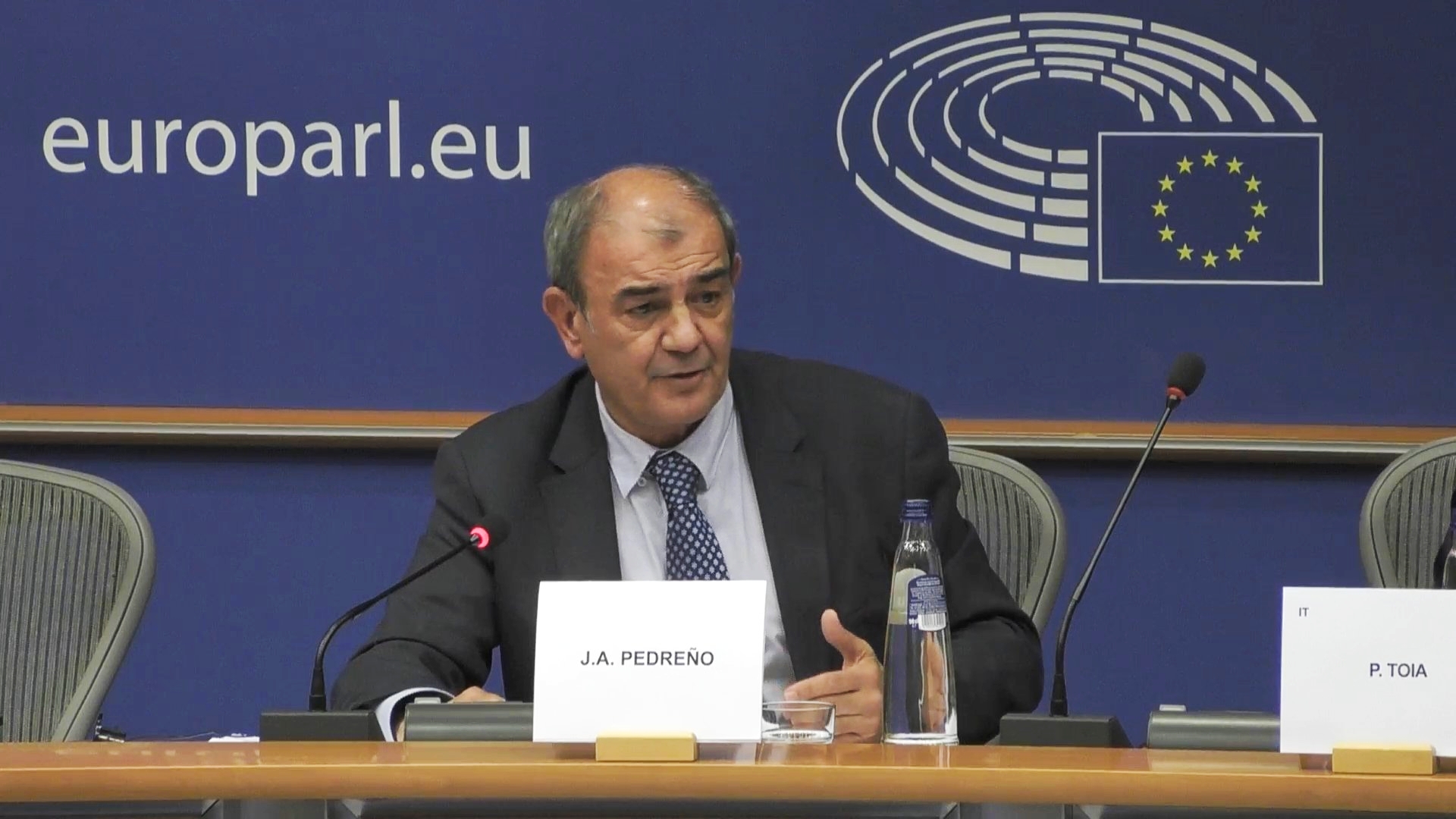
Pedreño made special mention of the challenge of attracting and accompanying young people and women to this business model, a challenge that will be overcome next year through the new academy of social entrepreneurship, which includes this plan. Another challenge that the social economy will face, according to the president of CEPES and SEE, is the support of attempts to modernize the legislation and social economy policies of different countries.
Commissioner for Employment and Social Rights Nicolas Schmit pointed out how the social economy offers answers to today´s different challenges. "It´s a challenge and an opportunity, and thanks to this plan the whole sector has made a lot of progress." After reviewing the post-pandemic situation and sensitive situations such as the war in Ukraine, he said: "We have to draw the right conclusions: we need a strong social economy sector."
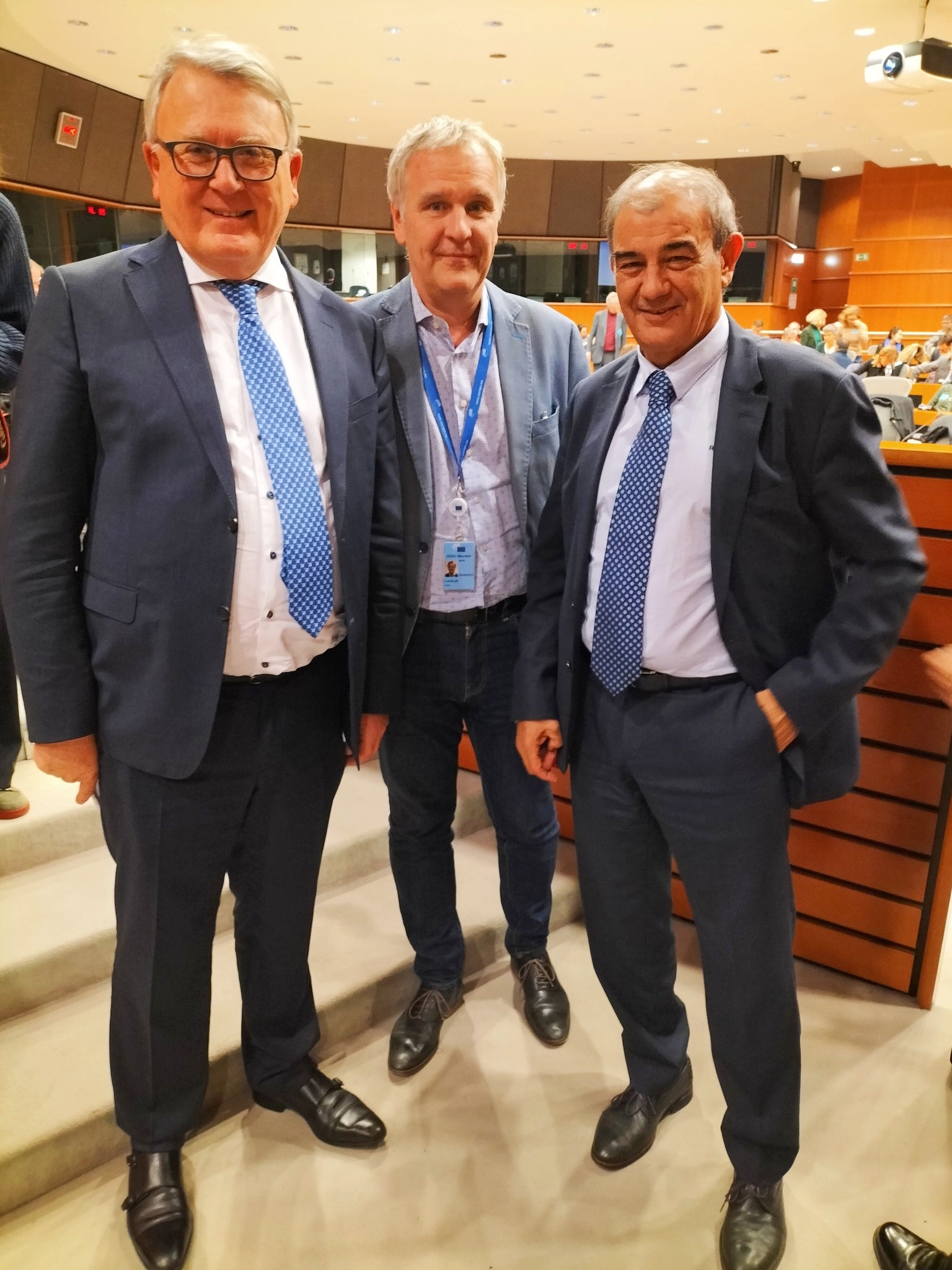
For his part,the Secretary of State for Employment and Social Economy, Joaquín Pérez Rey, said that the Government will approve "shortly" a new Spanish Social Economy Strategy that "will be dialogued" with the sector, and valued the role of the States that have worked in recent years to promote this business model , as well as the work carried out by the representative entities of the sector. In addition, he took advantage of his speech to remember that San Sebastian will be the capital of the social economy in 2023.
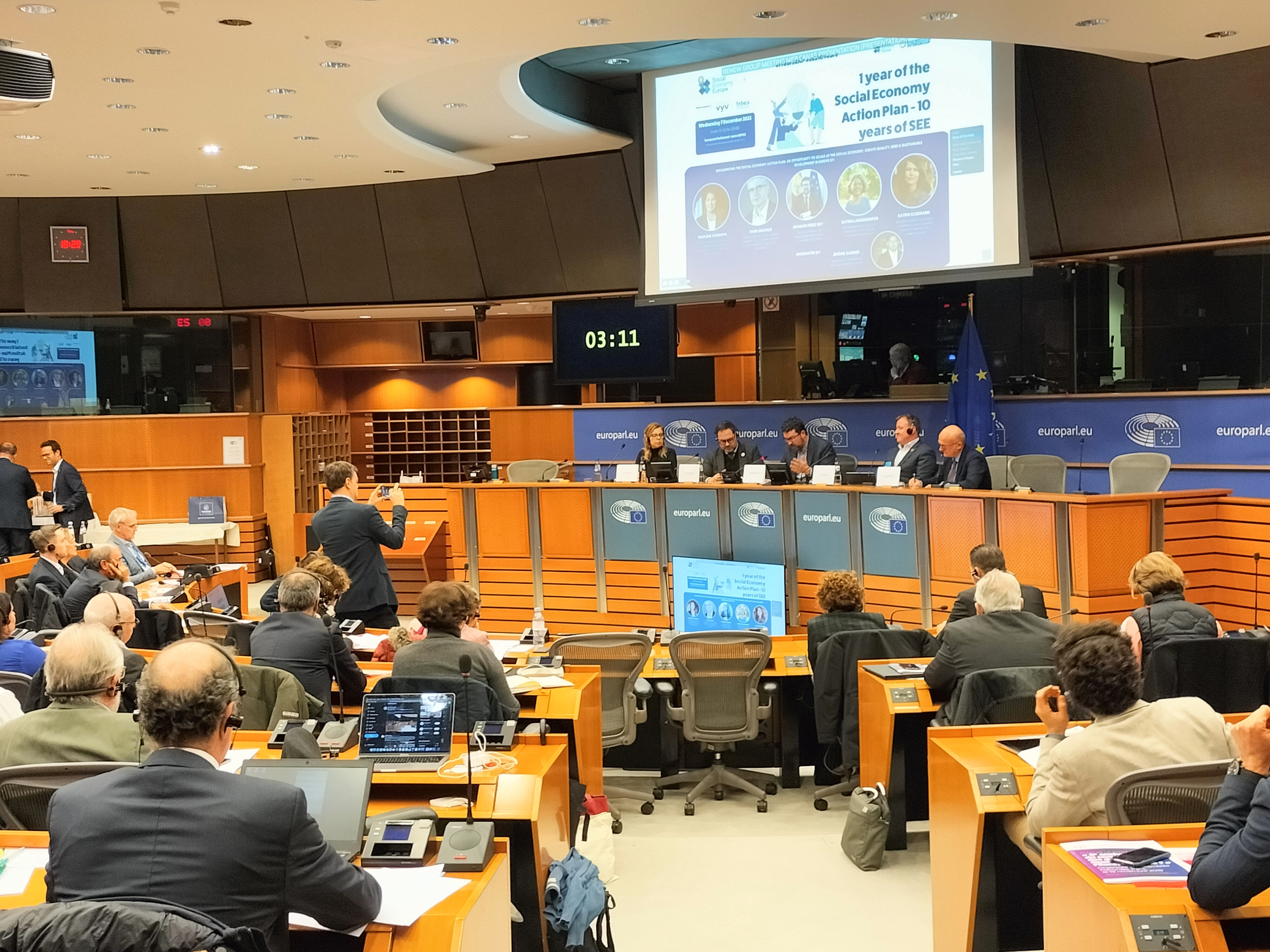
He also noted that in Spain, work continues on the "renewal" of three laws - the social economy, the insertion companies and the cooperative - and the approval, a few months ago, of the ERTE of the Social Economy and Care, endowed with 800 million euros, within the framework of the deployment of the European funds Next Generation EU.
The co-chair of the Social Economy Intergroup in the European Parliament, Patrizia Toia, focused on the social economy as a "great job opportunity" and on the plan as a starting point for the digital and green transitions, "which will give instruments to boost this economy in the different member states , by placing the social economy at the centre of the decisions of Europe, and therefore of the different States".
For his part, the vice-president of the Social Economy intergroup, Jordi Cañas, focused on the work done by the Members of the European Parliament to promote the social economy. "We are only at the beginning of this plan. We have many challenges that drive us to work. Now is the time when the social economy is at the center of the political debate, because crises have evidenced its role through concepts as basic as resilience. We will continue working so that the social economy is a lever of change for a more just, inclusive and prosperous society," he said.
Also noteworthy is the intervention of the Deputy Minister of Labour and Social Security of the Basque Government, Elena Pérez Barredo, which is part of the Spanish capital of the Social Economy that Donostia-San Sebastián will hold in 2023. Pérez Barredo highlighted the importance of this model in the Basque Country and invited all attendees to visit the city throughout the year and, especially between November 13 and 17, coinciding with the acts of the Spanish Presidency of the European Union, which Spain will have in the second half of 2023.
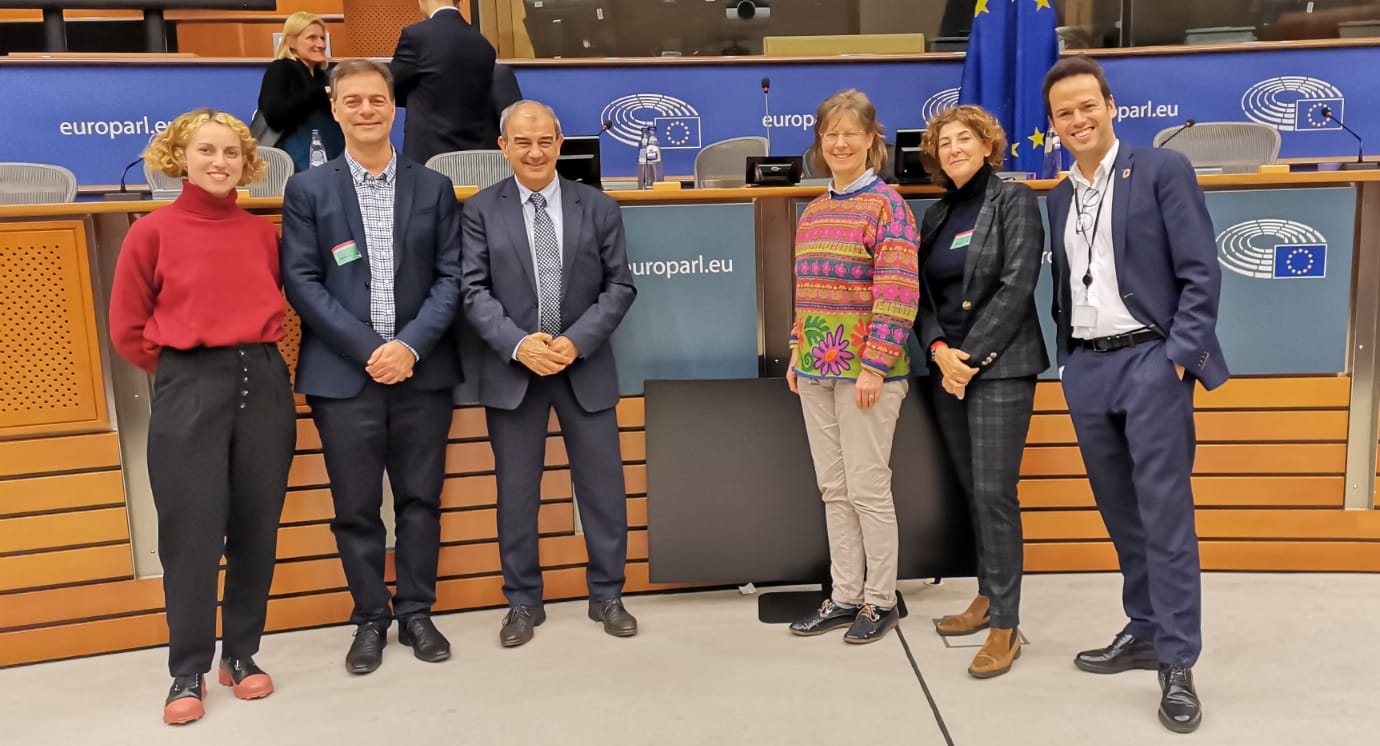
During the event, the ten years of Social Economy Europe (SEE), the entity that represents companies and entities of the social economy in Europe, were also celebrated. Juan Antonio Pedreño, stressed that SEE is an organization that, since its birth in 2012, is committed to an economy at the service of people, to the creation of a European ecosystem favorable to these companies and to participate in the implementation of the main policies of the EU.
The 9 entities that constituted it were AIM (Mutual Health Societies), AMICE (mutual and cooperative insurance), CEDAG (associations), CEGES (today the French Chamber of Social Economy), CEPES, the EFC (today Philea), ENSIE, REVES and SAW-B. Today it has 23 members.
Also, during the same event the SEE Assembly was held and the entry of three new member partners was approved: ADV Foundation (Romania), Techsoup Europe (Poland), and Pasekalo (Greece).
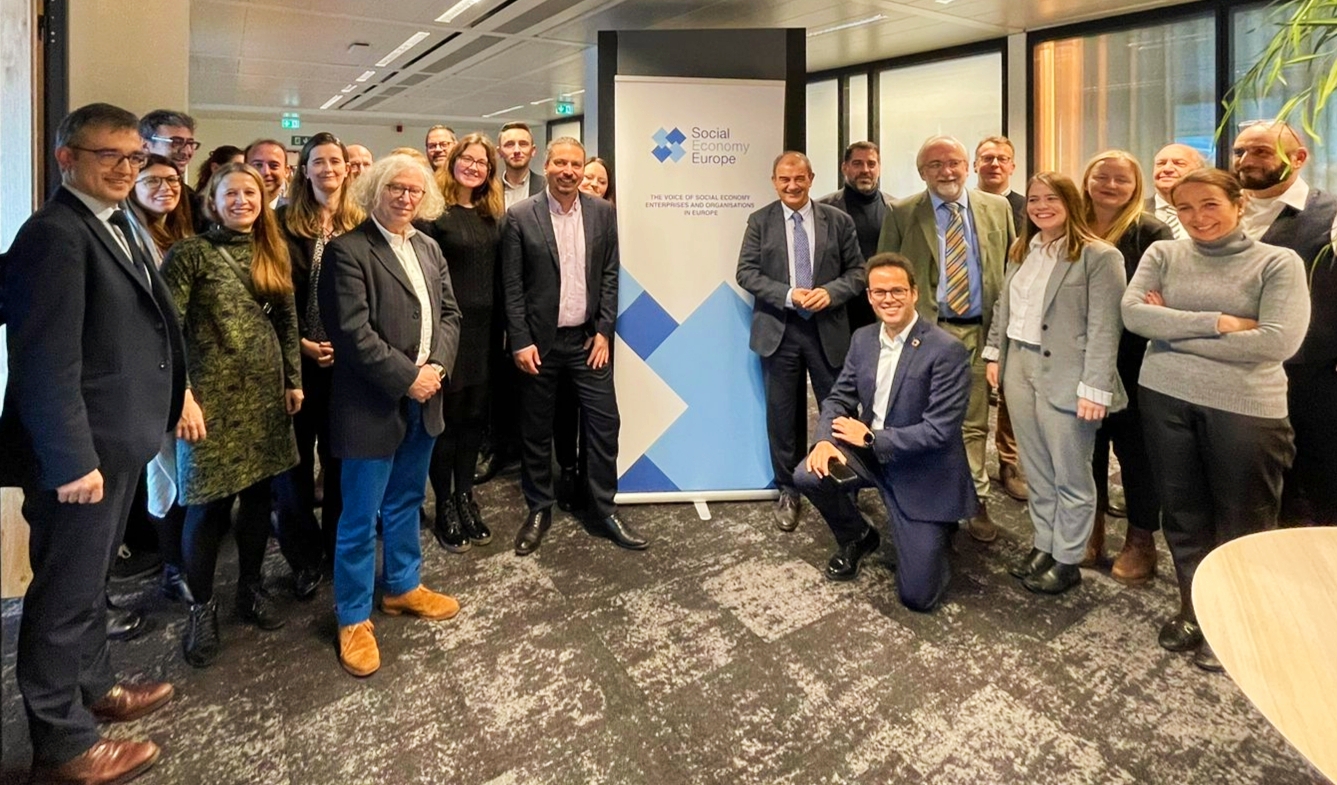
If you missed the event on December 7, click on this link to see it:

